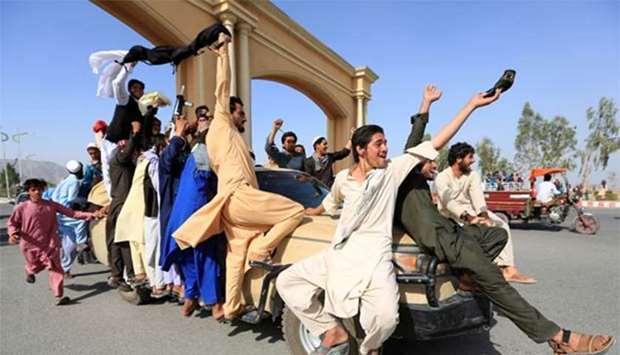The Taliban said on Sunday they would not extend their three-day ceasefire with Afghan security forces and fighting would resume, dashing hopes for the recent peace to continue.
The comments by Taliban spokesman Zabihullah Mujahid come after Afghan President Ashraf Ghani announced on Saturday a government truce with the militants would be extended. He asked the group to reciprocate. "The ceasefire ends tonight and our operations will begin, inshallah. We have no intention to extend the ceasefire," Mujahid told AFP in a WhatsApp message.
Mujahid made no reference to Ghani's announcement.
The first formal, nationwide ceasefire since the 2001 US invasion had been met with jubilation across the country as Afghans -- Taliban, security forces and civilians -- celebrated Eid, the holiday that caps the fasting month of Ramadan.
Taliban fighters and security forces embraced and took selfies with each other over the first two days of the Muslim holiday.
Civilians also flocked to greet the militants, who had left their posts or areas under their control to celebrate the halt in hostilities, which had fuelled hopes among war-weary Afghans that peace was possible.
Nangarhar attack
The extraordinary festivities were marred by a suicide attack in the eastern province of Nangarhar on Saturday that was later claimed by the Islamic State group's franchise in Afghanistan. IS was not included in the ceasefire.
The death toll from the blast has risen to 36, with another 65 wounded, Nangarhar health director Najibullah Kamawal told AFP, after a number of people with critical injuries died overnight.
Ghani's extension of the government's eight-day ceasefire, which had been due to expire on Tuesday, drew immediate international support and calls for the Taliban to follow suit.
The Taliban had agreed to a truce but only for the first three days of Eid, which started Friday, promising not to attack Afghan soldiers or police. They would, however, continue attacking US-led Nato troops.
With the ceasefire due to end Sunday night, fighting is likely to resume on Monday.
Before the Taliban's ceasefire had even started, analysts had expressed cautious optimism that the truces, if successful, could help build trust between the government and the Taliban and lay the groundwork for peace talks.
But it was clear on Sunday that not everyone in the Taliban approved of the bonhomie between its fighters and security forces.
The Taliban ordered its fighters to avoid gatherings of security forces and civilians, ostensibly to avoid further civilian casualties, following Saturday's suicide attack.
But some Taliban commanders also told AFP they disapproved of their fighters visiting government-controlled areas and celebrating with security forces.

